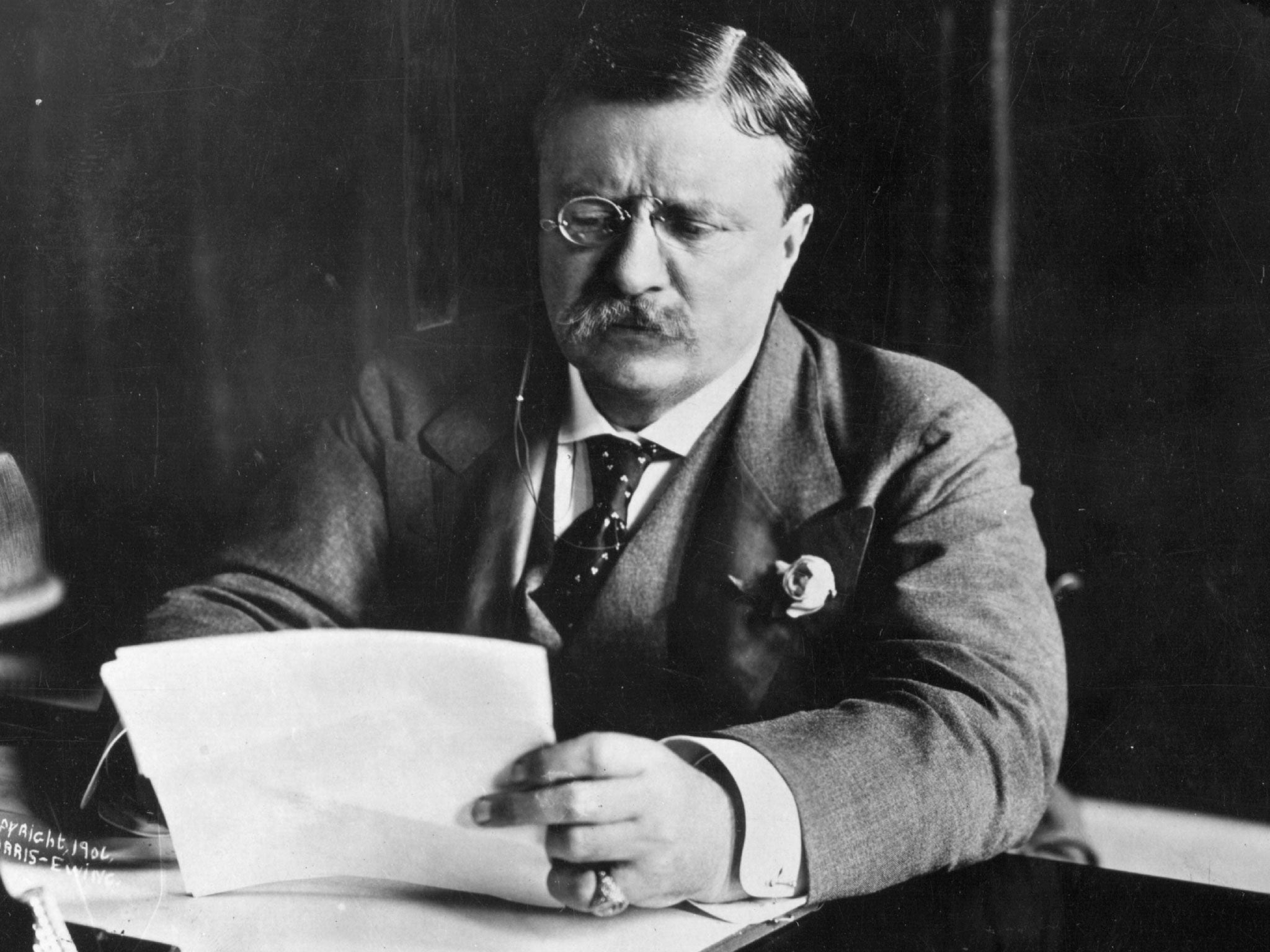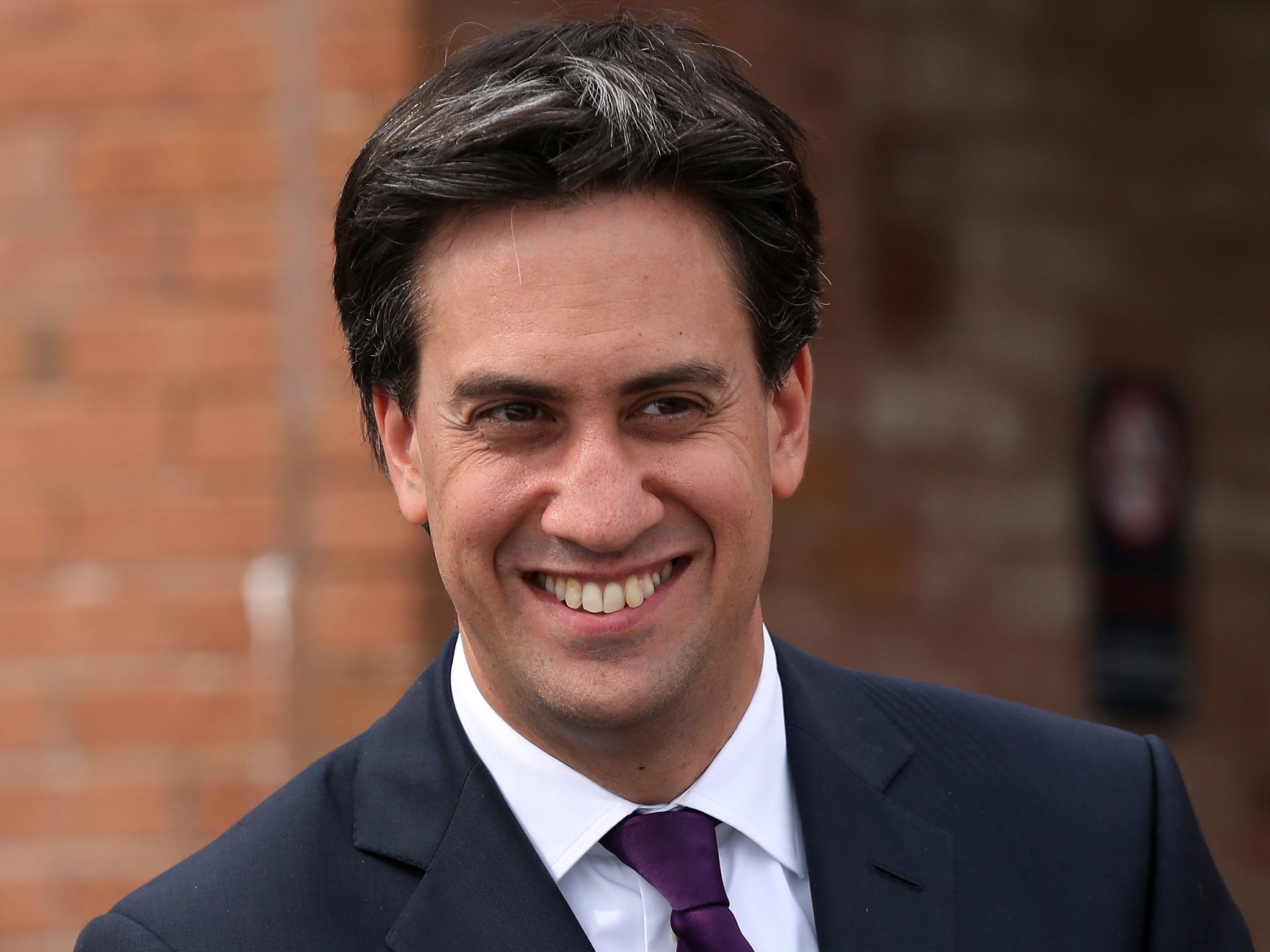President Theodore Roosevelt provides Ed Miliband with an unlikely role model
Consumer groups will be given a greater role in identifying and fixing "broken markets" under Labour plans

A Republican president with a cultivated “cowboy” image might seem an unlikely role model for the son of a Marxist intellectual who has a vision to become the first Labour prime minister to be elected on a left-of-centre manifesto in nearly 40 years.
But Ed Miliband today revealed that he has sought inspiration from the turn-of-the-century US leader Theodore Roosevelt for ideas on how to create a fairer British society and fight “predatory wealth”.
Despite being a Republican, Teddy Roosevelt championed what became known as the “Square Deal” – a programme to extend the government regulation of industry and enhance consumer protection to help the growing American middle class.
Mr Miliband said the concentration of power in the hands of big vested interest groups such as the banking and energy sectors had parallels with the corporate interests that exerted dominance in early 20th-century America.
He has instructed his staff to read Doris Kearns Goodwin’s book about the former president, The Bully Pulpit, to explain his thinking, and yesterday announced his first Teddy Roosevelt-inspired policy.

Speaking on the BBC’s Andrew Marr Show, Mr Miliband said that a Labour government would co-opt consumer rights groups such as Citizens Advice and Which? to highlight areas of market failure that harm people, as well as drawing up an Annual Competition Audit of Britain’s economy.
Government ministers and departments will be required to respond to any issues raised in the audit which fall within their responsibility within a strict three-month timetable. Mr Miliband identified lack of competition in the energy market and the banking sector as the two most obvious areas where the new regulation was needed.
But he also highlighted the relationship between the large, branded pub chains that own the majority of pubs in the UK – and the small business owners who run them under lease agreements. So called “Pub-Cos” have been criticised for years, he said, for forcing licensees to buy stock from them at inflated prices – damaging small businesses and pushing up prices for consumers. Despite the long-standing complaints, no action had been taken by successive governments, he added.
“Unless you bring the consumer into the heart of these things, we are not going to get the change we need, we are not going to shine the light on these broken markets,” he said.
“The Competition and Markets Authority scrutinises competition across the board. They will be working with Which?, the CAB and others to say: ‘Where are the areas where competition isn’t working, what are your members telling you about where we need to act?’ They will be sending a report to Parliament and it will be framing the work for the year ahead.”
Talking about the inspiration he had drawn from President Roosevelt, Mr Miliband said competition was in some ways a Conservative concept but one which had been neglected by the Tory party. “President Roosevelt was a Republican,” he said.
“I think lots of people in Britain, lots of Conservatives, will be thinking why is the Conservative Party not championing this agenda? Why have they become the champion of the big vested interests like the energy companies and the banks?
“It’s Labour that is the party of competition, Labour that’s taken this agenda forward. But I think it’s a really important point about how we change our country for the future.”
In the interview Mr Miliband also dismissed speculation that he might sack or move his shadow Chancellor Ed Balls before 2015, and did not rule out re-imposing a 50p tax rate in the Labour manifesto.
Join our commenting forum
Join thought-provoking conversations, follow other Independent readers and see their replies
Comments
Bookmark popover
Removed from bookmarks